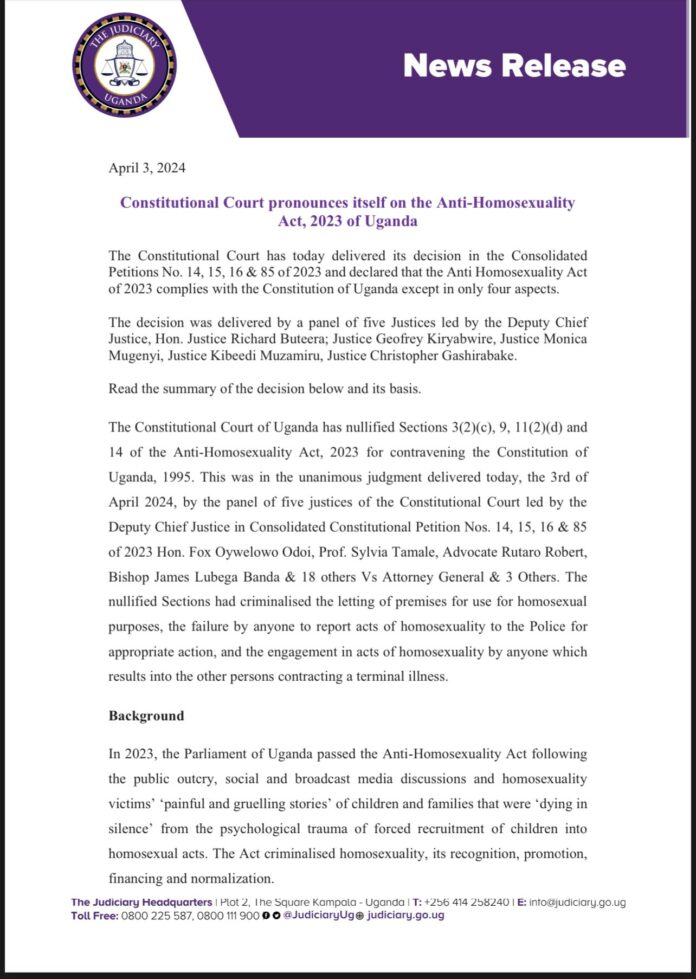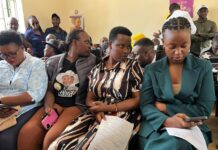The Constitutional Court in Kampala has declined to dismiss the Anti-Homosexuality Act, stating that it was primarily enacted to protect children and vulnerable individuals in society. This decision is outlined in the over 200-page unanimous judgment of the five justices of the Court, led by Deputy Chief Justice Richard Buteera. They addressed 13 out of the 14 issues framed for determination, answering them in the negative, except concerns regarding the impact of the act on the right to privacy, adequate living conditions, and the right to health for LGBTQ individuals.
The petitioners, including West Budama MP Fox Odoi, human rights advocate Nicholas Opio, Makerere University Law professors Sylvia Tamale and Dr. Kabumba Businye, veteran journalist Andrew Mwenda, and USAID, argued that certain sections of the Anti-Homosexuality Law violated human dignity, freedoms of association and expression, and the right to engage in lawful trade and business.
However, in their judgment today, the Justices noted that the court has the responsibility to exercise its duties while considering the cultural and societal norms of the people. They emphasized that any language, literature, or practice contrary to societal aspirations cannot be endorsed. The Court dismissed the petitioners’ evidence suggesting that parliamentary procedures were violated at both the committee and speaker levels.
Additionally, they ruled against the petitioners’ claims that the law infringed upon the rights to discrimination, equality, freedom of association and expression, and the right to engage in lawful professions, businesses, or trades, asserting that homosexuality does not constitute such activities. Furthermore, the Court highlighted the risks associated with anal sex, citing physical harm and the disease burden it imposes on the government, particularly concerning the prevalence of HIV among males engaging in same-sex activities.
The Court nullified sections 3(2)(c), 9, 11(2)(d), and 14 of the Anti-Homosexuality Act, which criminalized various aspects of homosexuality, including letting premises for homosexual purposes, failure to report acts of homosexuality to the police, and engagement in acts of homosexuality resulting in the contraction of terminal illnesses. The affected sections were deemed to violate the rights to privacy, adequate living conditions, and health for LGBTQ individuals.
The petitioners, represented by their lawyers led by Nicholas Opiyo, expressed satisfaction with this relief and stated their intention to escalate the matter to the Supreme Court. In a press statement issued shortly after the court proceeding, the Judiciary Public Relations Officer, Justice James. J. M Ereemye explained that the court’s decision was based on several factors, including legislative and judicial precedents from other jurisdictions, lack of global consensus on non-discrimination based on sexual orientation and gender identity, and Uganda’s unique socio-cultural context.



